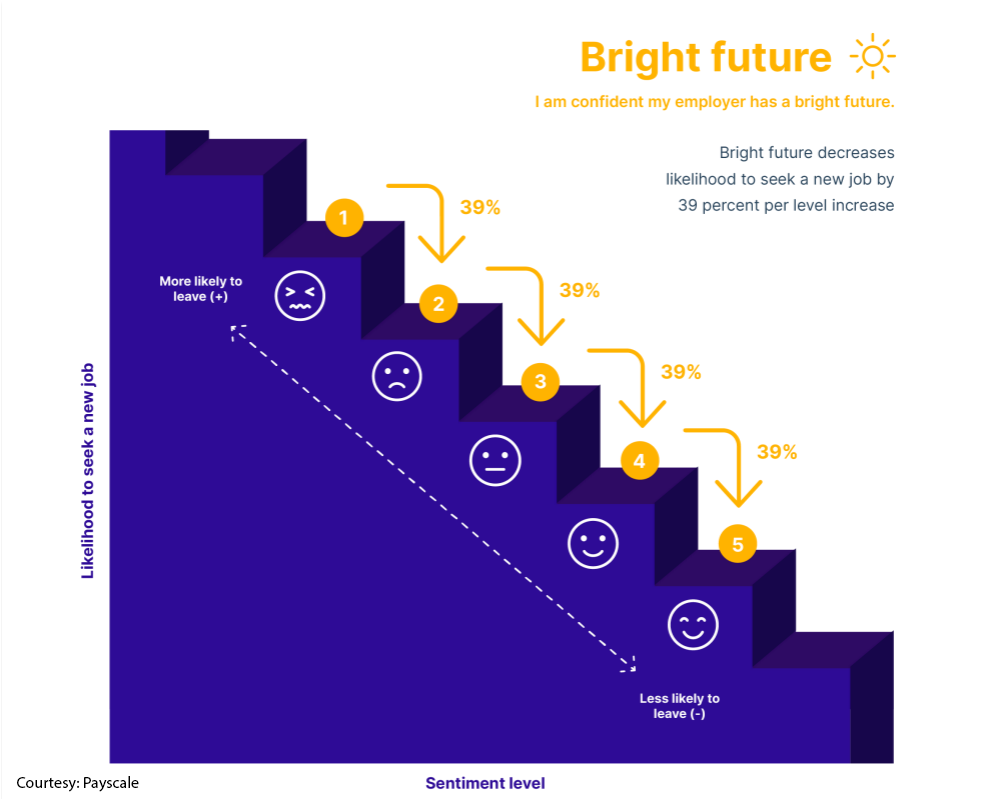Amid the continuing labor volatility in the U.S., it may not be surprising that a recent survey found the organization’s future economic outlook to be the top driver of employee turnover.
In other words, those poor quarterly reports are going to have workers heading for the door—39% of them, in fact, according to Payscale, a provider of compensation data, software and services.
Apart from the organization’s forecast for success, other leading attrition variables include a perception of unfair pay (27%) and poor workplace culture (22%), according to Payscale’s first-ever Retention Report, which surveyed more than 578,000 U.S. workers. While those stats would be reasonable for most HR leaders, the report did uncover one surprising finding: The old adage that “people don’t quit jobs, they quit bosses” may be much less critical than it used to be. Only 21% of those surveyed cited their relationship with a manager as a potential reason to leave, making it the second-to-last of the top turnover factors.
“As we think about the last few years, the landscape has shifted in terms of what is most important to retaining employees,” says Lexi Clarke, Payscale’s chief people officer. “Hiring and training competent managers is only part of the equation for employee engagement and retention. It’s really become about the entire employee experience and not just one factor; in this case, their manager.”

Clarke explains that this lower-than-expected response likely reflects the ups and downs in employee-manager relationships. It also suggests individual employees feel they have some control over improving their relationship with their manager—or they may feel they can put up with a certain amount of frustration that is common with human interactions.
“But if employees are not paid fairly, or if the issue is systemic across the whole organization, then employees are more likely to seek better opportunities,” she notes. “That being said, if the manager is abusive or the situation doesn’t improve or degrades over time, employees will still be more likely to leave.”
Negative relationship with manager increases employee turnover chances, research shows
Clarke notes that previous Payscale research found that employees who say they have a negative relationship with their direct manager are more likely to leave than those who are neutral or report a positive relationship.
See also: As pressure mounts on managers, 3 ways to improve their effectiveness
While employees may not be quitting “bad bosses” as frequently as thought, Clarke says the findings about compensation and culture reflect that appreciation is one of the leading reasons that employees will stay with an organization. So, effective managers can get ahead of turnover by building appreciation into how they lead.
“Although employees are slightly less likely to leave their jobs now than during the Great Resignation, there is and will continue to be an increase in demands from employees,” Clarke says. “And employers must directly address and understand what they can do to meet those requests in order to retain their workforce.”
The post Are ‘bad bosses’ really driving turnover? Not likely, says one report appeared first on HR Executive.